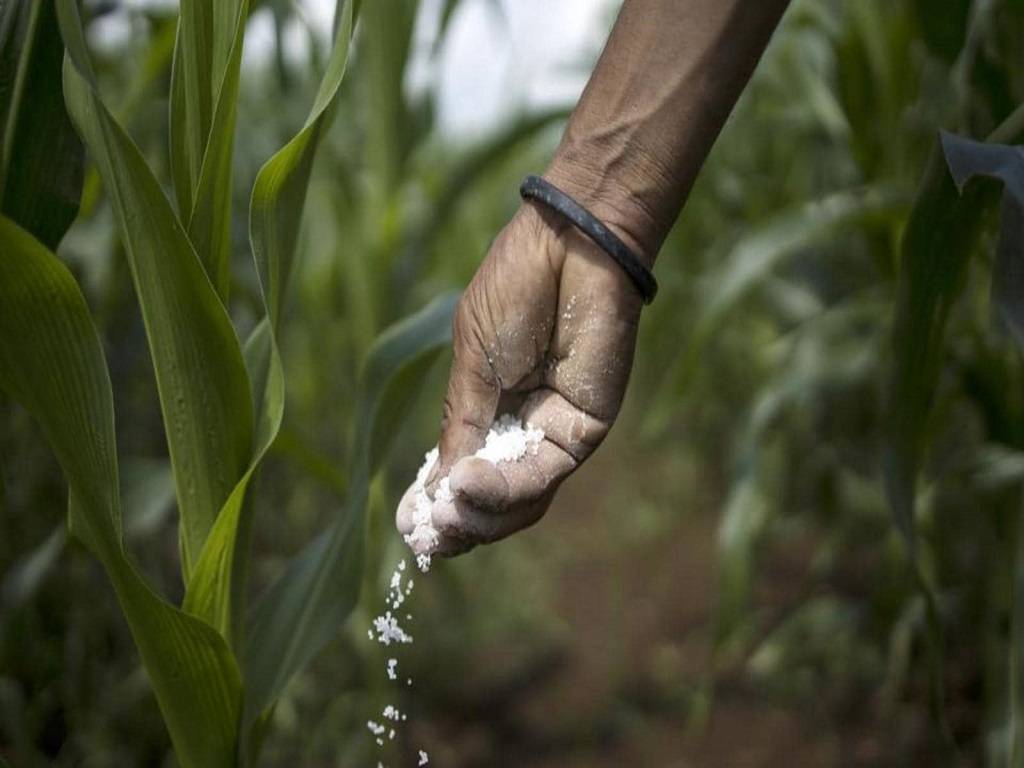
India needs to be AATMANIRBHAR in every way in order to become a superpower of the Asian Century. When it comes to feeding 1.4 billion people, the concept takes on new meaning. Recognizing this fact, Narendra Modi government has begun to increase fertilizer production in the country.
The government will protect farmers from rising global fertilizer prices.
With the worldwide price of fertilizer projected to rise over the next decade, the Union government has opted to shield our farmers from the repercussions. Soon, our farmers will no longer rely on imported fertilizers to deliver nutrients to their crops; instead, they will use made-in-India fertilizers.
To encourage domestic production of phosphatic and potassic fertilizers, the government has made significant modifications to the existing nutrient-based subsidy (NBS) policy. The decision was taken during a high-level meeting which was chaired by Mansukh Mandaviya, Union Minister for Chemicals and Fertilizers.
"It was decided to continue assistance to the domestic industry for the production of P&K fertilizers and propose further measures in the current NBS Policy to encourage domestic production of P&K fertilizers in the nation," according to an official statement. This move will aid in utilizing the unutilized domestic production capacity of these fertilizers and promote ‘Atmanirbhar Bharat”.
The government intends to increase domestic production capacity
India now possesses 30 lakh tonnes of phosphate reserves. They may be found in Rajasthan, the central section of peninsular India, Hirapur (Madhya Pradesh), Lalitpur (Uttar Pradesh), the Mussoorie syncline (Uttarakhand), and the Cuddapah basin (Andhra Pradesh). Mandaviya has issued directions to commercially ramp up production in these facilities.
NBS policy in a nutshell
NBS policy is a driving factor behind the availability of fertilizers in India. Contrary to common belief, it does not set fertilizer pricing in India. Fertilizer prices are determined by market forces. Simply put, based on calculations from both demand and supply, fertilizers companies fix the prices on which our farmers buy from them.
However, since most companies run on the profit motive, the government intervenes during the final steps of fixing prices. The government's monitoring intervention ensures that the price of fertilizers does not go against the interests of farmers.
Furthermore, when companies have finalized their prices, government meets demand-side commitments through subsidies. The government ensures that no farmer loses out on purchasing nutrients for his or her farm by offering a defined amount of cash assistance to farmers.
Explorations to be accelerated
Currently, India imports over 90% of its fertilizer requirements. India requires significant investment to increase its domestic production capacity. This is why the government will not only increase output at the aforementioned facilities, but will also speed up investigation of possible potassic resources in Rajasthan's Satipura, Bharusari, and Lakhasar. More research will be carried out in Uttar Pradesh, Madhya Pradesh, Gujarat, Andhra Pradesh, and Karnataka.
Becoming a Food-basket is the first step towards becoming a superpower
Despite the international notion of an agriculture-based economy, agriculture's contribution to GDP has dropped over the years. This is a positive indicator since it indicates that India has enough food to feed its population, leading in the growth of the industrial and service sectors.
Recently, the government proposed liberalized farm laws which had the potential to soar farmers' wages, but it had to be repealed owing to a protest by a small minority of well-organized individuals.
With the production of fertilizers in India, we would be able to enhance our agri-exports as well. Increased fertilizer output is a significant step in this approach.
















